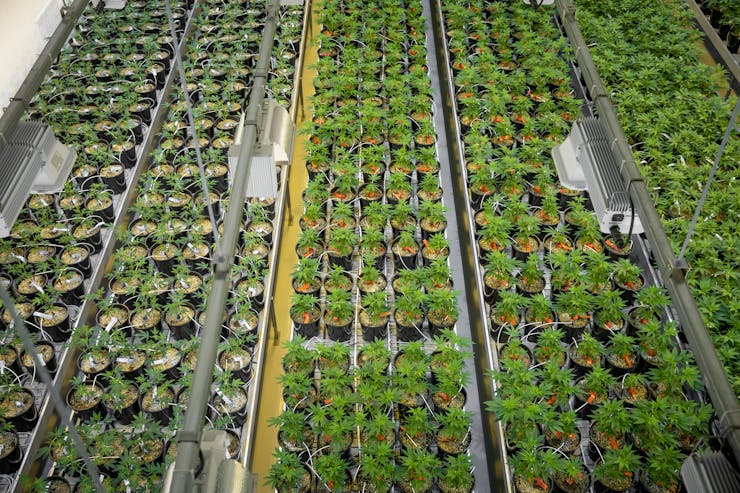To the great relief of producers across Canada, farm-gate sales are coming to Ontario this spring—but it’s going to cost LPs. Due to provincial legislation demanding producers sell all their product to the Ontario Cannabis Store alone, the OCS will require producers to “sell” them cannabis, and then “buy” it back at an increased rate.
Producers nationwide have been clamouring for their provinces to open up farm-gate sales, allowing producers to sell their cannabis direct to consumers via a retail outlet located on site at a production facility. Last winter, Brock business professor Michael J. Armstrong presented farm-gate sales at LP production sites across southern Ontario as a means to ease the tiny number of adult-use stores to be allowed under Ontario’s first cannabis retail lottery.
This summer, BC announced it was reconsidering its rules on farm-gate sales, and many expected it would be the first province to launch direct-to-consumer LP shops. Instead, it was Ontario that announced in November it would be the first province to launch farm-gate, and it planned to do things its way. (Never mind that the Ford government initially announced farm-gate sales in October of 2018, and then delayed it.)
Ontario’s farm-gate deal won’t require the merchandise to travel to and from the OCS warehouse—producers will simply pay the OCS for the right to sell their products direct to consumers. But that raised the ire of some commentators, including industry lawyer Trina Fraser. She told Global News, “If they are saying they intend to mark it up the same as if [they’d] taken physical possession, that I have an issue with. It starts to get difficult to understand what the policy justifications for that are when we’re obviously struggling to displace the illicit market and match pricing. […] You’re now charging for a service you’re not even providing, which is physical distribution.”
However, James E. Wagner Cultivation CEO Nathan Woodworth said he understood in principle why such a premium would be necessary. It wouldn’t be fair for LPs and craft growers to have the advantage of the dramatically reduced prices made possible by not paying rent on a retail location or selling products through the OCS, Woodworth said.
“I think we can find ways to nonetheless still benefit the community in a variety of different approaches, including being more competitive in pricing, despite working through those normal channels,” Woodworth told Inside the Jar. “One of the struggles we have as an industry is to get this product to people when it’s fresh.”
For once, this isn’t a problem specific to cannabis regulation—craft breweries that offer tasting rooms must also pay out to liquor boards, who manage prices. Many have suggested the future for craft cannabis in Canada is in offering similar opportunities to sample product as craft breweries do. If so, they will—for once—have to play by the same rules as alcohol producers.





